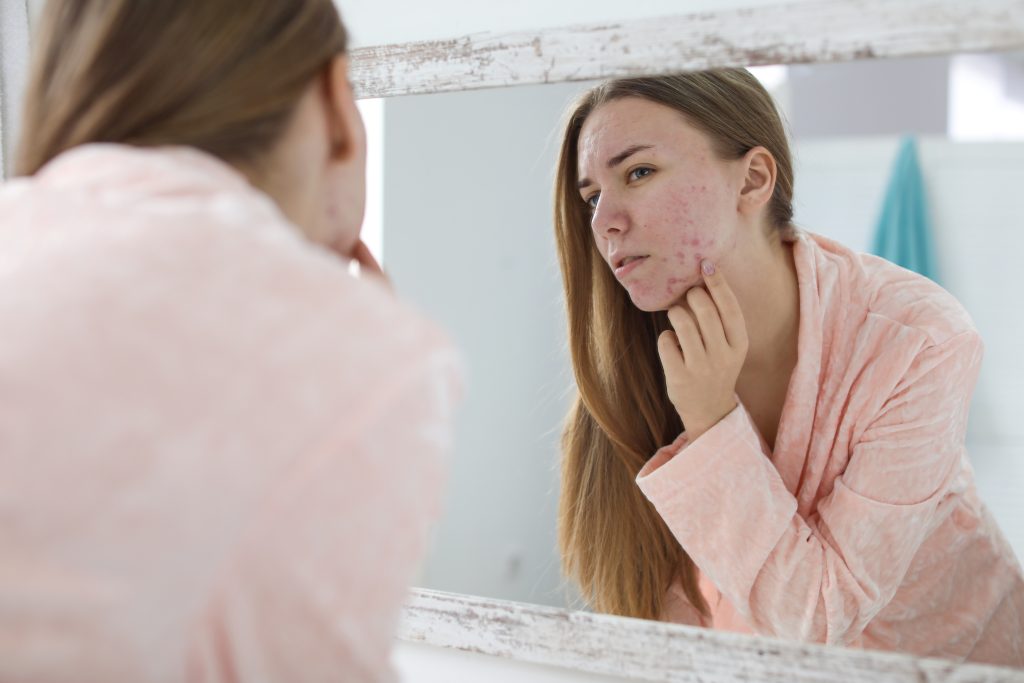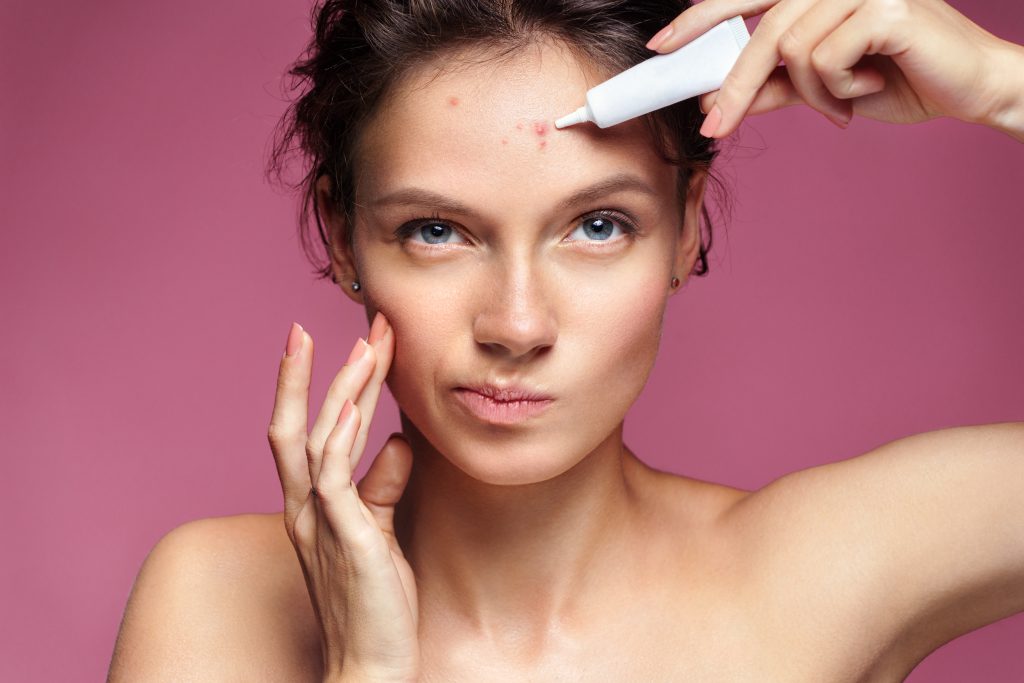
Medical Contributors
When To See A Doctor About Acne

Acne is one of the most distressing skin issues, and it tends to pop up at the most inconvenient times–right before a party you’ve been anticipating or during a scheduled family photo shoot.
Annoying as it may be, acne is a part of our life that usually starts during puberty. That said, while the occasional pimple is normal, painful, persistent acne that won’t go away regardless of what home treatment you try can be particularly frustrating.
You might be wondering when to call the expert to take care of your acne. In this article, we’ll take a closer look at acne, including the five signs when it’s time to see an expert for help.
Understanding Acne
Acne is a common skin condition that most of us will experience at some point in our lives. This condition happens when hair follicles are clogged with oil, dirt, and dead skin cells. While it’s mostly seen among teenagers, primarily because of the fluctuating hormones, acne can affect people of all ages.
Acne usually targets one’s face, but it can also pop on your chest and your shoulders and upper back as these are the places that produce the most oil.
Different Types Of Acne
Did you know that acne comes in several forms? These include:
- Blackheads: Blackheads are open bumps on the skin filled with oil and dead skin cells. They may look as if dirt has accumulated in the bump, but these are dark spots caused by the irregular light reflection of a clogged hair follicle.
- Whiteheads: Unlike blackheads, whiteheads are bumps that remain closed. They are also filled with oil, dead skin cells, and bacteria, but because they’re under the skin, they can produce a raised white bump.
- Papules: Papules are small pink or red bumps on the skin that become inflamed. This type of acne may be sensitive to touch. Numerous papules may indicate severe to moderate acne breakout.
- Pustules: Almost similar to papules, pustules are inflamed pimples resembling a whitehead but with a red ring around the bump. This bump is typically filled with yellow or white pus. They often cause scarring and dark spots when picked, popped, or scratched.
- Nodules: These are large, inflamed pimples that feel firm to the touch. Nodules develop deep within your skin and can be large and painful.
- Cysts: Cysts are large, pus-filled pimples that look like boils. Like nodules, cysts are painful and will leave scars.
When To See A Doctor
In most cases, acne goes away after a few days. It can be treated and prevented with home remedies, over-the-counter (OTC) medications, and even LED light therapy, which is becoming more popular in the skincare industry today.
Yet some instances require a visit to a skin professional. Here are five signs to check if you should consult a dermatologist for your acne:
1. You’re Not Sure If It’s Acne
If you’ve been acne-free for years, but suddenly red bumps appear on your face, back, upper chest, or elsewhere, you should see your doctor. This is particularly true if you’ve never been diagnosed with severe acne.
Some skin conditions, like folliculitis and rosacea, look remarkably similar to acne. So, if you’re not sure you have acne, it’s best to visit your doctor and get evaluated.
2.OTC Acne Treatments Are Not Working Or Making It Worse
Mild acne often goes away in a few days or weeks using OTC cleansers, gels, and creams. However, some people don’t respond well to OTC treatments–either they don’t see any changes or the ones they’re using are making the outbreaks worse.
In this case, consulting with a qualified expert is your best option. A dermatologist can help you find the proper treatment for your acne breakouts.
If your usual OTC acne treatments are not working, the best dermatologist can prescribe stronger and more potent medications. If your current treatments make you more prone to unsightly pimples, they can help you find the right products suitable for your skin to give you better results.
Besides, they can provide helpful tips for proper acne care and home remedies to support your prescribed acne treatment.
3. You Have Severe Acne Breakouts
If you tend to have severe breakouts of acne, nodules, or cysts, then you should skip OTC products altogether. In general, these products are not strong enough to improve severe acne and may even worsen the condition.
In general, cysts and nodules are the most severe forms of breakouts. When you have them, you should consult a dermatologist right away. They can help you get the breakouts under control promptly.
In addition, because both are deep-rooted forms of acne, they cause severe scarring. Consulting a dermatologist can help you treat these breakouts quickly and prescribe the proper treatment to prevent scarring.
4. The Acne May Be Caused By Certain Medication
If you think your acne appeared right after taking a medication, then it’s best to consult a dermatologist immediately.
Some medications, such as birth control pills, anti-anxiety/anti-depression drugs, and steroids can cause acne. Visit a doctor and divulge any medications you’re taking to determine if they may be causing your acne breakouts. If it does, your healthcare provider can help change your prescription.
5. You’re Embarrassed About Your Skin
For most people, especially teens, recurring acne or severe breakouts can be difficult to cope with and embarrassing. It can damage your self-esteem and cause anxiety and depression.
A report revealed that acne sufferers experience emotional, social, and psychological issues. So, if you’re skipping social gatherings or you feel embarrassed about your breakouts, it’s best to see a dermatologist as soon as possible. They can help clear up your acne and offer pieces of advice to help you deal with acne the right way.
Takeaway
Acne will inevitably come into your life. You’re lucky if it’s just a passing phenomenon now and then. Yet suppose your severe acne breakouts cause too much pain and embarrassment and won’t budge even with the most effective OTC medications or home remedies. In that case, it’s time to consult a dermatologist. They can help address your acne breakout issues to help you flaunt clear, beautiful skin so you can recover your self-esteem.



